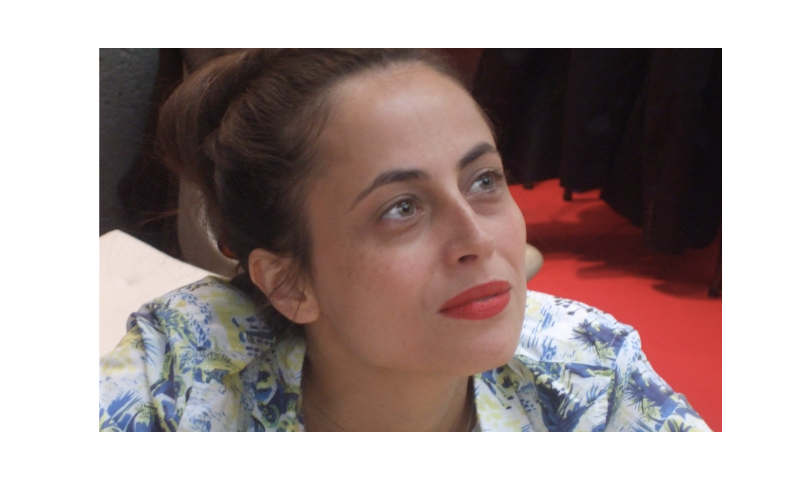Leslie Camhi
New Yorker, May 11, 2023
“As I was writing, I had the feeling that I was living in all these different periods at once. It was as if I had entered into a different relationship with time.”
The Postcard,” a novel by the French author Anne Berest, opens on a snowy morning in a Parisian suburb: “My mother lit her first lung-charring cigarette of the morning, the one she enjoyed most, and stepped outside to admire the whiteness blanketing the entire neighborhood.”
The scene was drawn from life: in early January, 2003, Berest’s mother, Lélia, a college professor and chain-smoking structural linguist, went out to gather the mail and found, tucked among the junk mail and New Year’s greetings, an anonymous postcard. It had a picture of the Opéra Garnier in Paris on one side, and, on the other, the names Ephraïm, Emma, Noémie, and Jacques, written in an awkward, unfamiliar script. Lélia recognized the names: her grandfather Ephraïm Rabinovitch; his wife, Emma; and two of their three children, Noémie and Jacques. They were Jews who, in 1942, had been deported from France and then murdered at Auschwitz. Lélia’s late mother, Myriam—the eldest of Ephraïm and Emma’s children—had escaped her family’s fate by the slenderest of threads. In later years, Myriam almost never spoke of them, or of her own wartime experiences.
As it happened, Lélia was about to give oral testimony in a legal case, seeking compensation from the French state for property that had been confiscated from her family during the war. Had the postcard been sent as an act of remembrance, or was it a warning to her, to cease and desist?
“I was twenty-four when the postcard arrived,” Berest told me, over breakfast—blood-orange juice for her—in the dark-panelled lobby of the Bowery Hotel in Lower Manhattan last fall, in a conversation that would continue for six months over Zoom, e-mail, and WhatsApp. Growing up in the Parisian suburb of Sceaux, the middle of three daughters, she didn’t know much about her Rabinovitch relatives. “Once, in elementary school, my teacher gave us an assignment over the holidays to draw our family trees.” There were big gaps in hers. “When my mother realized that she couldn’t tell her daughters the names of her own grandparents, she felt ashamed,” Berest said. “So she began researching.”
… [To read the full article, click here]


